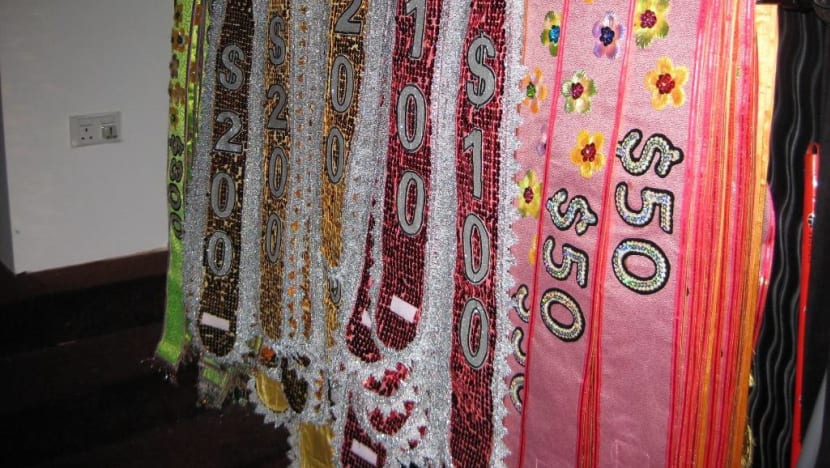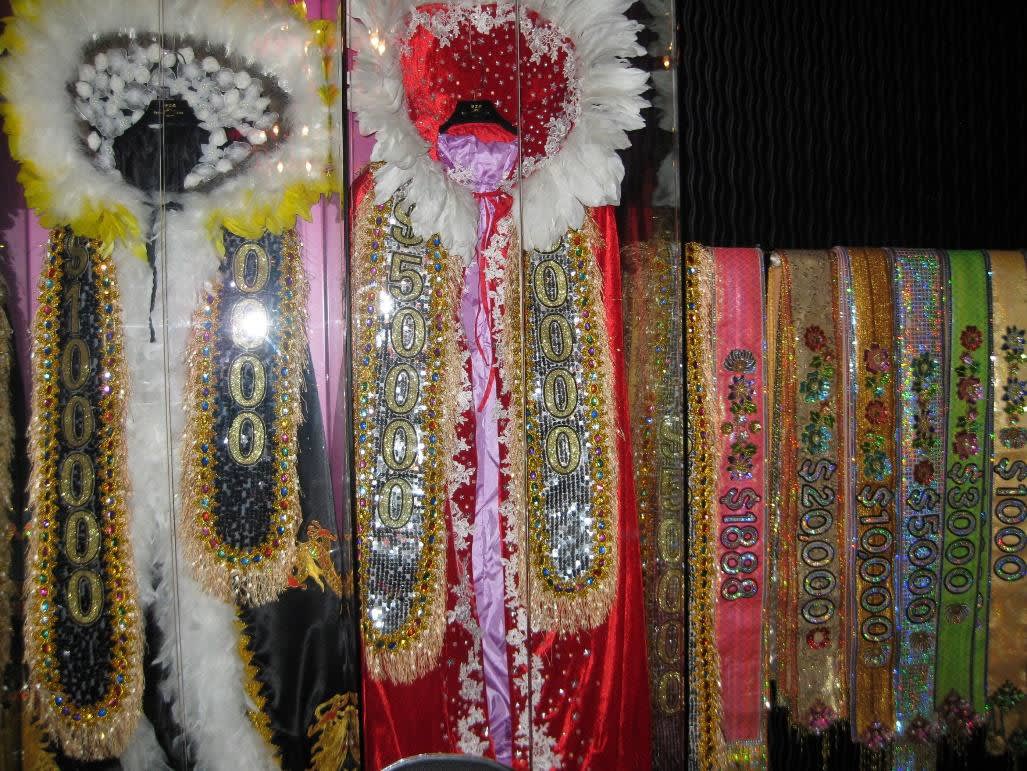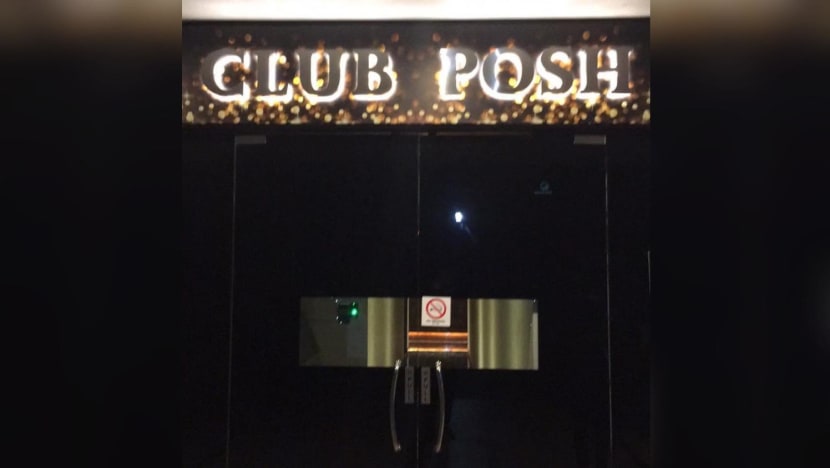Nightclub operator manipulated sales of flower garlands; jailed for GST evasion and money laundering
The garlands, bought by customers for performing artists, cost between S$50 and S$100,000.
The price of the flower garlands ranged from S$50 to S$100,000. (Photo: SPF,IRAS)
13 Sep 2022 08:45PM (Updated: 13 Sep 2022 09:55PM)
SINGAPORE: A nightclub operator was jailed and penalised more than S$630,000 on Tuesday (Sep 13) after he was convicted of Goods and Services Tax (GST) evasion and money laundering offences.
Soon Kok Khoon, the operator of Club Posh Entertainment and West Palace Entertainment, was found to have helped the clubs make false entries in their GST returns “with wilful intent" to evade the tax, the Singapore Police Force (SPF) and the Inland Revenue Authority of Singapore (IRAS) said in a joint news release.
He was convicted of three counts of GST evasion and ordered to pay a penalty of S$630,861, three times the S$210,287 in GST he evaded. Another five charges were taken into consideration during the sentencing.
In addition, Soon was found guilty of three counts of money laundering involving the disguise of property amounting to S$3,214,389. Five other charges were also taken into consideration for the sentencing.
He received a jail term of more than 13 months for his offences.
USING SHELL ENTITIES TO DIVERT REVENUE
In 2016, Soon instructed accountants at Club Posh Entertainment and West Palace Entertainment to omit reporting the clubs’ sales revenue, mainly from the sale of flower garlands, as well as the output tax.Customers would buy these flower garlands, priced between S$50 and S$100,000, at the clubs. The garlands would then be delivered to performing artists identified by the customer after payment.
Soon also instructed his staff to divert the sales revenue of the clubs, which were GST-registered, to two shell entities using separate point-of-sale terminals linked to them, said SPF and IRAS.
“These shell entities were not GST-registered and had no actual business activities,” they added.
The undeclared revenue from the sales of the flower garlands was recorded as proceeds from fictitious sales of souvenirs in the accounts of these shell entities.
“By doing so, Soon had thereby disguised money which, in part, directly represented the benefits of his criminal conduct from GST evasion,” the authorities said.

Flower garlands were delivered to performing artists identified by customers. (Photo: SPF,IRAS)

Those who are found guilty of wilfully submitting false GST returns by overstating any input tax, understating any output tax or including fictitious transactions could be penalised three times the amount of tax undercharged, fined no more than S$10,000 and/or jailed for up to seven years.
Anyone who acquires, possesses, uses, conceals or transfers benefits from criminal conduct could be fined up to S$500,000, jailed up to 10 years, or both, if convicted.
The authorities encouraged businesses or individuals to immediately disclose any past tax mistakes, adding that IRAS will treat such disclosures as mitigating factors when considering actions to be taken.
Source: CNA/ng(ga)
HOW SOON HELPED FALSIFY THE CLUBS' TAX RETURNS
- The two clubs, which were GST-registered, made taxable supplies of flower garlands to customers. The garlands were delivered to performing artists identified by the customers after they were paid for.
- The price of the flower garlands ranged from S$50 to $100,000. For customers who used their credit cards to pay, Soon instructed his staff to swipe the cards using the point-of-sale terminals linked to the two shell entities. These entities were not GST-registered.
- Revenue amounts and GST output tax of the flower garlands were omitted from the clubs' GST returns even though the items were taxable.
- Money collected through credit cards or cash for the garlands were not deposited in the clubs' bank accounts. The clubs neither issued receipts for the sales of the garlands nor recorded them in the clubs' accounts.
- As the garlands were "charged" to the point-of-sale terminals of the shell entities, Soon instructed his staff to falsely record the taxable supplies as "sale of souvenirs" of the shell entities.
- Soon also told his employees to understate the "sale of souvenirs" in the shell entities' accounting books to avoid hitting the GST registration threshold.

